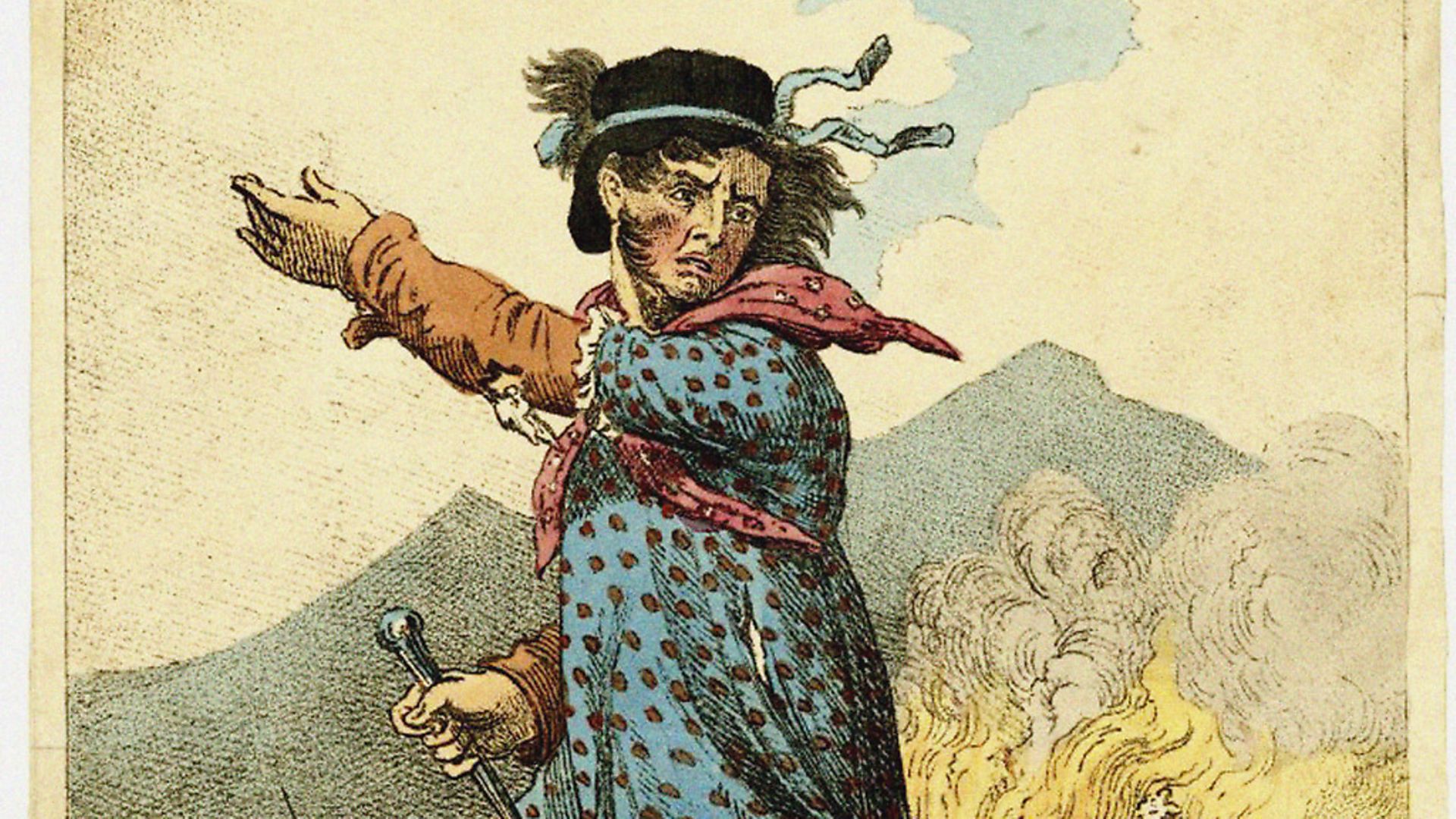
The technological revolution looks destined to transform livelihoods every bit as much as the industrial revolution of 200 years ago did.

It was all over in 20 minutes. A mass charge towards the front gate and the ground floor windows was met by a volley of gunfire. Soon two men lay mortally wounded and the remaining attackers fled. Later 14 of them would hang outside York Castle. The Luddite attack on Rawfolds Mill had failed.
If it had been Leatherhead not Liversedge, or craft brewers not croppers, it might possibly have become one of the most significant moments in British political history.
Yet, as the Trades Union Congress turns 150 this year and with 2019 marking the 185th anniversary of the deportation of the Tolpuddle martyrs, one rebellious chapter from decades earlier is widely forgotten.
But as an act of anti-establishment insurrection, the Luddite attack on Rawfolds Mill arguably supersedes the actions of the six farmworkers in Tolpuddle, Dorset convicted in 1834 of swearing a secret oath to a trade union.

Certainly, for some of its perpetrators, the consequences were even more devastating. On the night of April 11, 1812, upwards of 100 men marched on the mill, in Liversedge, West Yorkshire, intent on destroying its newly-installed machinery. They were the West Riding Luddites, part of another oath-based movement named apocryphally after Ned Ludd, an apprentice who began destroying machinery in 1779. Ludd turned out to be fictional, but the movement that bore his name took root.
Luddites feared automation would take their role and destroy their livelihoods, and Luddism spread north from Nottingham particularly between 1811 and 1816. It led to the government billeting soldiers around the industrialising areas of northern counties to quell uprisings. At one point there were more soldiers in the north of England than there were concurrently fighting Napoleon’s forces in the Iberian peninsula.
I was born in Liversedge, part of West Yorkshire’s Spen Valley. For what might otherwise be regarded as a quiet backwater, Spen has had its share of political turmoil. Just over 200 years after the Rawfolds Mill attack, its MP Jo Cox was murdered by a far-right extremist in the run-up to the Brexit referendum. The area has a long history of non-conformism and in the early 1800s was a magnet for disgruntled workers, intent on saving their jobs from creeping automation.
To this day ‘Luddite’ is rarely a pejorative term in this part of West Yorkshire, in contrast to the rest of the world. Indeed it was only as I grew older and then moved away from the Spen Valley that I realised Luddites were considered without fail ‘a bad thing’.

My maternal grandfather, whose family can be traced back to the 13th century in the valley, spoke of the Rawfolds perpetrators in almost reverential terms. His father, my great-grandfather, knew the families of some of those involved. A memorial to the Luddites now stands outside Liversedge’s former town hall, the only statue to Luddism in the world.
The West Riding Luddites selected Rawfolds Mill, on the River Spen and owned by William Cartwright, because local croppers – skilled workers who ‘cropped’ woollen cloth until it was smooth using heavy shears – believed that new machinery there would render their roles unnecessary. Work in the Spen Valley, long associated with the textile industry, was scarce and looked set to become scarcer.
They plotted their action at the aptly-named Shears Inn on Halifax Road (the pub still stands today) and on the evening of April 11 marched on the mill. But Cartwright had got word and was waiting with some of his employees and armed members of the Cumberland militia (it was believed that Yorkshire volunteers would be unlikely to shoot on their fellow countymen).
The mill was a virtual fortress. Even though the Luddites attacked from all four sides, using any number of pistols, hammers and hatchets, the building proved impregnable. Despite shattering windows, hacking the frames and shooting into the interior, the croppers were forced to retreat, leaving pools of blood and two of their number seriously injured.

The two, Samuel Hartley and John Booth, were taken first to the local Yew Tree Inn, now a private home, and, when it was feared their associates might come to free them, to the Star Inn in Roberttown, also still open (although my grandfather insisted at least one of them was taken to a squat dwelling of the type common in the lower Pennines at the junction of Halifax Road and Windybank Lane, since replaced by a modern house).
Whatever the setting, the denouement was the same. Both clearly only had a short time to live. Booth, about to undergo amputation of his shattered leg, beckoned local clergyman and forceful anti-Luddite Hammond Roberson, asking him if he could keep a secret. ‘Yes’, replied Roberson, eager to ingratiate himself with the authorities. ‘Aye lad,’ said the dying Luddite, ‘so can I’. They were his last words.
Yet despite Booth’s selflessness, and although the attackers were masked, the ringleaders became quickly known to magistrates and arrested. The government was alarmed by the scale of the attack and set out to suppress further action by holding a mass trial in York. Essentially a show trial, more than 60 men were tried and, while juries acquitted 30 with many others sentenced to penal transportation, 14 men would hang on January 16, 1813, leaving 13 widows and 57 fatherless children. It is often cited as the biggest judicial hanging for a single crime in British legal history.
The government completed its repression of Luddism with acts of parliament making ‘machine breaking’ itself a capital crime. The legislation and the prosecutions were opposed by the poet and peer Lord Byron who described the laws as ‘inane’ and the act as ‘squalid wretchedness’.
Nonetheless it had the desired effect, the Luddites were defeated, the rebellion over. And, as if to prove the Luddites’ point, 20 years after Rawfolds Mill there were no croppers left in the Spen Valley.
The Tolpuddle Martyrs were eventually pardoned after 800,000 signatures were collected demanding their freedom. They returned from deportation in Australia and an annual festival is held in their honour. The West Riding Luddites, even those who weren’t hanged, have never received such absolution.
Why has history judged (or even erased) their memory in a different light? Certainly there was violence attached to their actions that was absent in Tolpuddle. But that violence was directed primarily at machinery. It was an era when redundancy, in the starkest use of the word, came with no recompense. If you lost your job in 1812 there wasn’t even the workhouse to fall back on, as the Poor Law reforms were still two decades away.
It is too simple to say Luddites were mere hooligans. They were desperate, with families to feed. Without the structure of trade unions, machine breaking was one of the few ways workers could pressurise employers. Historian Eric Hobsbawn described Luddism as ‘collective bargaining by riot’. More recently, the LA-based tech writer Brian Merchant – who is now working on a book about the Luddites – said they represented ‘a powerful, insurrectionary labour movement designed to protest layoffs and penalise business owners. The Luddites weren’t technophobes… they were labour strategists’.
Merchant’s last book was about the iPhone and his interest in Luddites shows how they raised issues which resonate as loudly today as at any time since their emergence at the turn of the 19th century.
Just as rapid industrialisation threatened livelihoods then, so the technological revolution is menacing them now. Robots are making jobs redundant, just as new machinery did back then. And the gig economy – whether driving for the likes of Deliveroo, or working on a zero hours contract in a Sports Direct fulfilment centre – offers employment with no security in a landscape with little or no trade union representation. It will be interesting to see how 21st century workers will respond to their jobs being made obsolete by technology, and how the reaction may differ to that of the Luddites 200 years ago.
If the Luddites are absolved of the charge of mere hooliganism, a kinder interpretation is that they were misled and misguided. The automation which they fought against brought the ability to reduce prices, including for the unemployed, and promoted further innovation, while creating new employment in entirely unforeseeable ways. The same arguments, of course, are now made for the replacement of human workers with robots. As the Luddites showed, for those faced with losing their jobs, change does not seem so benign and resistance to it looks more like a means of survival.
The rebels of 1812 were essentially agricultural workers caught up in something entirely new – industrialisation, and the rapid onset of a new, rapacious capitalism. They believed, probably rightly, that their very existence was on the line. They did not know how those developments would unfold and where the processes would lead to. Workers nowadays, facing an AI revolution, are similarly in the dark about how things will pan out, and their reaction is equally unclear. The Luddites now are consigned, by most, to the dustbin of history: an anomaly, a group who tried in vain to halt the humanity’s advance at a time of unparalleled (until today) progress.
Yet they were not as unsuccessful as they, at first, seem. Yes, they were defeated at Rawfolds and in court. And those defeats cleared the way for the depravations and horrific working conditions of the industrial revolution.
But it is also possible to trace from the rebellion of the Luddites, and the actions of the Tolpuddle Martyrs and like-minded labour movements, to the founding of the Trades Union Congress in 1868, a model which soon spread to Germany and to a wider European movement of trade unionism.
Almost completely disconnected from its 19th century context, today the word ‘Luddite’ is nearly always used incorrectly as a synonym for ‘technophobe’ – someone who dislikes, can’t or is unwilling to use new technology such as smartphones.
However, Luddism was never about this sort of knee-jerk objection. The original Luddites understood new technology all too well. They just despised the effect it would have on their lives, families and future.
The relentless advance of 21st century tech may yet show us that we have more in common with those 1812 rebels than we first thought.
Maybe, just maybe, it’s time to start reappropriating the term Luddite, because in some parts of the country it never lost its cachet.
Warning: Illegal string offset 'link_id' in /mnt/storage/stage/www/wp-includes/bookmark.php on line 357
Notice: Trying to get property 'link_id' of non-object in /mnt/storage/stage/www/wp-includes/bookmark.php on line 37






